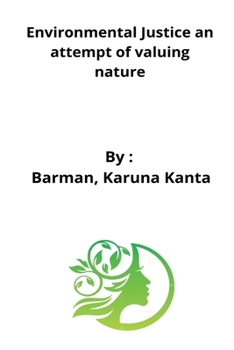Environmental Justice an attempt of valuing nature
INTRODUCTION The main contention of this thesis is to explicate and examine environmental justice. The concept of justice is a philosophically noble concept. It is a concept on the basis of which humans' civilization and greatness of humans is reflected. What then is justice? Simplistically, it can be said that justice means 'what is just'. What is just or unjust again is problematic to determine. Usually, the concept of justice is anthropocentric concept in the sense that it is deeply associated with humans. What is just or what is unjust can be determined by men on the basis of rules, institutional or conventional. The concept of justice can be measured with regard to enjoying rights and duties. However, our interpretation of justice is non-anthropocentric because here the concept of justice cannot be apprehended with regard to man or human, rather here we are more interested to talk of environmental justice. Environmental justice in our sense can be measured with regard to paying equal values to all natural communities. Accordingly, it can be said that every natural community enjoys equal values and hence is identical with other natural communities. Thus, our sense of environmental justice would be determined with regard to paying values to all natural community. Even though all natural communities are doing something for the betterment of ecological system but not of all have equal respect and moral dignity. Within the sphere of anthropocentrism, it is said that men alone do possess intrinsic values and others have only instrumental or use value. This is the culture of anthropocentrism where justice cannot be protected in the desired sense. It is recorded that one-fifth of the world's population consumes four-fifths of the world's resources. Accordingly, four-fifths of the world's populations live with only,
Related Subjects
Nature




